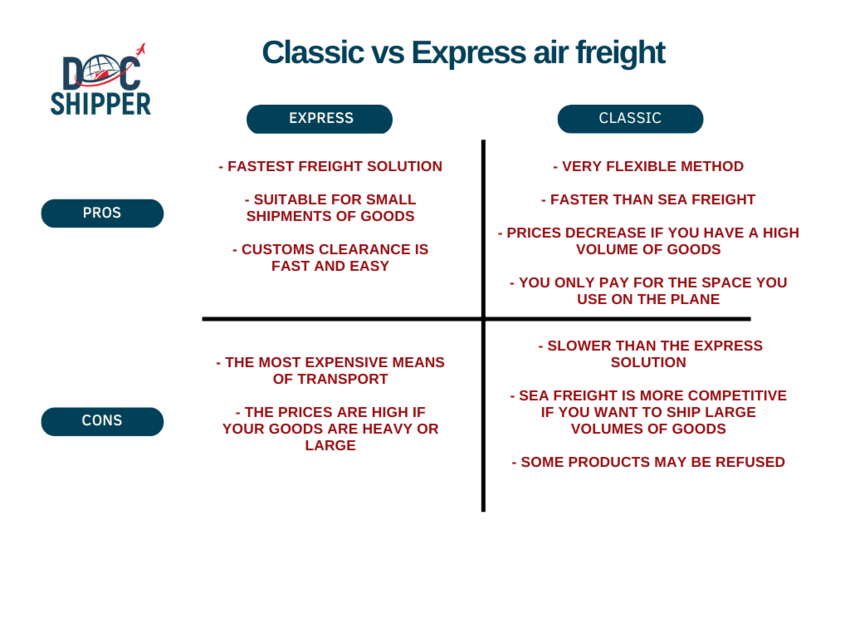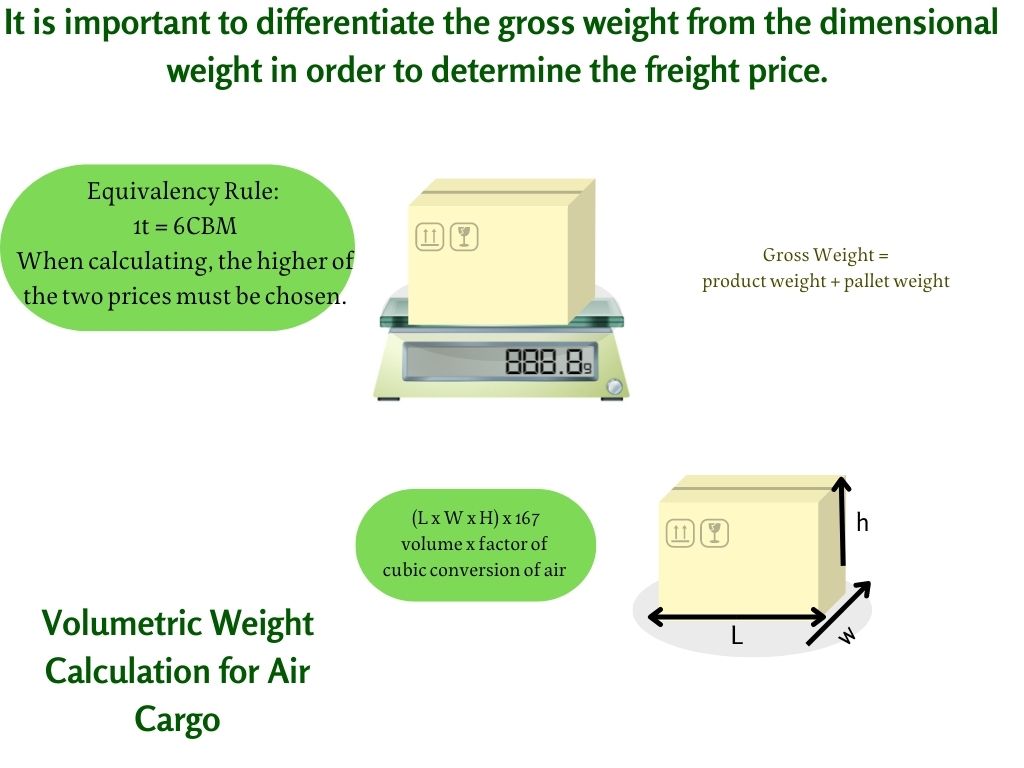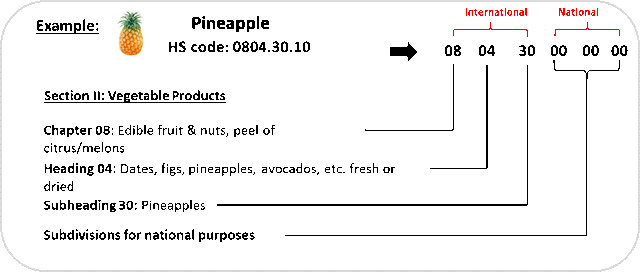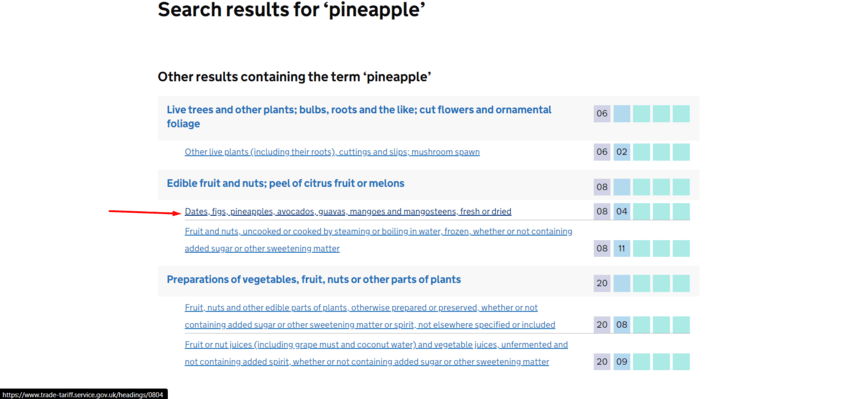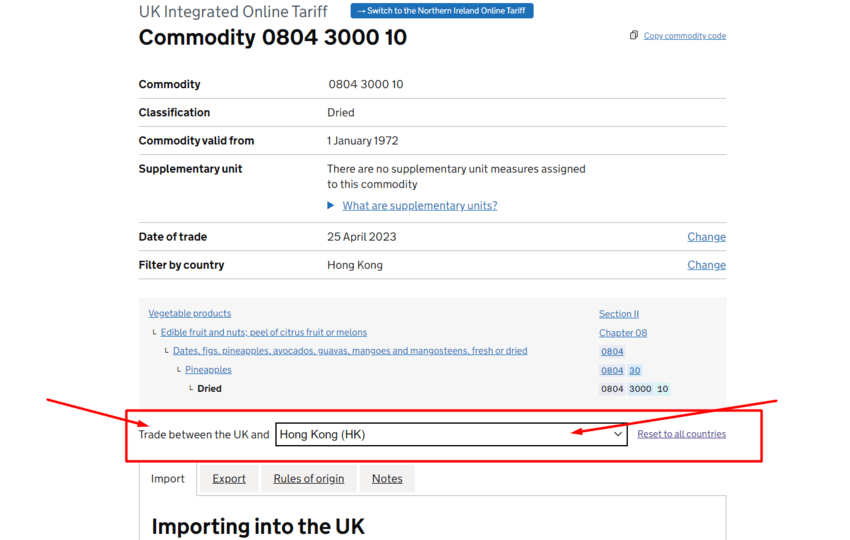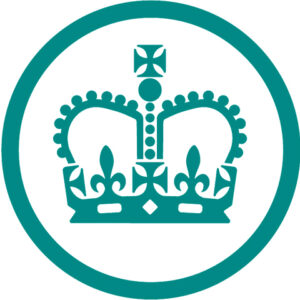Freight shipping between the UK and Morocco Rates -Transit time – Duties & taxes
A well-developed and reliable freight network is crucial to facilitate trade and strengthen economic links between the UK and Morocco. A diverse range of transport modes, including sea, road, air and rail, are used to connect the two countries.
These various modes of transport work in harmony to enable the smooth and rapid delivery of various types of goods, ranging from raw materials to manufactured goods and consumer goods.
DocShipper is a full-service logistics provider specialising in facilitating the transport of goods between the UK and Morocco. With its extensive network and expertise in international shipping, DocShipper offers tailor-made solutions to businesses, ensuring a smooth and efficient transport process. Their services cover all aspects of freight.
What is the best methods of transportation between the UK and Morocco ?
There are various means of transport available for shipping freight between the UK and Morocco.
The UK and Morocco enjoy a strong trading relationship. In 2020, total merchandise trade between the two countries amounted to approximately £1.26 billion (source: UK Office for National Statistics).
The main goods exported by the UK to Morocco are vehicles, machinery, pharmaceuticals, electrical equipment and mineral fuels (source: International Trade Centre).
On the other hand, the main products imported by the UK from Morocco are agricultural products (such as fruit and vegetables), clothing and textiles, fish and seafood, and electrical machinery (source: International Trade Centre).
Here are the best options to suit you: air freight and sea freight.
Need help with your shipment?
Need assistance with your shipment? Dont hesitate to contact us even for a simple question. Choose the option that suits you
Live chat with an expert Chat on WhatsApp Free Quote 24h
Sea freight from the UK to Morocco
Shipping by boat from the UK to Morocco
In order to bring goods into the UK through maritime transportation, it is crucial to determine the specific port in the UK where your products will be delivered. When exploring the shipping industry, the initial question often asked is, “Which port is closest to my location?” Sea freight is a popular choice for transporting cargo from the UK to Morroco. The main ports in the UK that are utilized for shipping goods to Morocco include Southampton, Felixstowe, Tilbury, and London Gateway. These ports offer regular container and bulk cargo services to various ports in Morocco, such as Casablanca, Tanger-Med, Jorf Lasfar, Agadir, and Mohammedia.
Main ports of the UK
Port of Felixstowe
 Situated on the eastern coast of England near Felixstowe in Suffolk, the Port of Felixstowe is a significant container port. It holds the distinction of being the largest container port in the UK and one of the busiest in Europe.
Situated on the eastern coast of England near Felixstowe in Suffolk, the Port of Felixstowe is a significant container port. It holds the distinction of being the largest container port in the UK and one of the busiest in Europe.
With an annual handling capacity of over 4 million TEUs (twenty-foot equivalent units) of cargo, the port boasts excellent road and rail connections to the rest of the country, as well as direct shipping routes to major ports worldwide. Renowned for its efficiency, reliability, and innovation in the container shipping industry, the Port of Felixstowe plays a crucial role in supporting both UK trade and the global supply chain.
Port of London Gateway
Located in Essex, England, on the Thames Estuary, the Port of London Gateway is a modern deep-sea container port. It was established in 2013 and stands out as one of the newest and most technologically advanced ports in the UK.
Equipped with state-of-the-art facilities, including a sizable container terminal, automated cranes, and a rail terminal, it has the capacity to handle over 3.5 million TEUs of cargo annually. Designed to accommodate the largest container ships in the world, the Port of London Gateway serves as a vital component of international trade and enjoys excellent connectivity to major transportation networks.
Port of Southampton
Positioned on the southern coast of England, the Port of Southampton serves as a major container and cruise port. It holds the distinction of being the busiest cruise port in the UK and handles more than 1.8 million TEUs of containerized cargo each year.
The port offers excellent road and rail connections throughout the UK, along with direct shipping routes to major international ports. With a rich maritime history, the Port of Southampton has played a significant role in the development of the UK’s shipping industry. Presently, it serves as a vital hub for global trade and remains a popular destination for cruise ships and their passengers.
Port of Tilbury
Situated approximately 25 miles east of central London on the River Thames, the Port of Tilbury is a major port with a century-old legacy. It has emerged as one of the largest ports in the UK, handling various types of cargo, including containers, roll-on/roll-off (ro-ro) freight, bulk commodities, and forest products. Additionally, the port serves as a crucial hub for the construction industry, facilitating the passage of a significant quantity of building materials. Thanks to its strategic location and exceptional transportation links, the Port of Tilbury serves as a vital gateway to both the UK and Europe, playing a pivotal role in supporting the country’s economy.
Main ports of Morocco
Port of Casablanca
As the largest port in Morocco, the Port of Casablanca plays a vital role in the country’s economy. It is strategically located on the Atlantic coast and serves as a hub for international trade. The port offers state-of-the-art infrastructure, including container terminals, bulk terminals and modern facilities for handling a wide range of goods.
Tangier-Med Port
Located near the city of Tangier, the port of Tangier-Med is one of the largest transshipment ports in the Mediterranean region. It serves as a gateway for trade between Africa, Europe and the Americas. The port has advanced container terminals with modern handling equipment, making it a preferred choice for many shipping companies and logistics service providers.
Port of Jorf Lasfar
Located on the Atlantic coast of Morocco, the port of Jorf Lasfar is a large industrial port mainly known for its phosphate and coal exports. It has terminals dedicated to the handling of bulk cargo and is well connected to the country’s mining regions. The strategic location of the port and the efficiency of its operations make it an important player in international cargo transport.
Port of Agadir
Located in southern Morocco, the port of Agadir is a key commercial gateway for the region. It specialises in handling a wide range of goods, including agricultural products, fisheries products and general cargo. The port offers modern infrastructure, including container terminals and specialised facilities for refrigerated goods.
Port of Mohammedia
Located near the city of Mohammedia, the port of Mohammedia is an important industrial and commercial centre in Morocco. It has a dedicated oil terminal, which handles the country’s oil imports and exports. The port also has facilities for general cargo and container handling, contributing to international trade in the region.
These ports, with their strategic locations and efficient operations, play a crucial role in facilitating international cargo movements and contributing to Morocco’s overall commercial and economic development.
Transit time between UK and Morocco
The transit time from a UK port to a Moroccan port can vary depending on a number of factors such as the ports involved, the shipping line, weather conditions and the type of goods being transported. As a general rule, the transit time for shipping from the UK to Morocco varies between 5 and 15 days.
For example, if you are shipping goods from a UK port, such as Southampton or Liverpool, to the port of Casablanca in Morocco, the transit time may be around 7 to 10 days. However, these are estimates and may vary.
| Port of Casablanca | Tangier-Med Port | Port of Jorf Lasfar | Port of Agadir | Port of Mohammedia | |
|---|---|---|---|---|---|
| Port of Felixstowe | 7 to 12 | 7 to 12 | 9 to 14 | 9 to 14 | 10 to 15 |
| Port of London Gateway | 8 to 12 | 5 to 9 | 9 to 13 | 10 to 14 | 9 to 13 |
| Port of Southampton | 7 to 12 | 5 to 9 | 8 to 13 | 8 to 13 | 8 to 13 |
| Port of Tilbury | 7 to 12 | 5 to 9 | 8 to 13 | 8 to 13 | 8 to 13 |
It is important to consult the shipping company or freight forwarder for more accurate and up-to-date information regarding transit times, as they can provide specific details depending on your shipping requirements and current shipping schedules.
Complications may arise during transit between UK and Moroccan ports. Factors such as adverse weather conditions, port congestion, customs procedures, vessel scheduling and commercial disruptions can impact on transit time and the overall shipping process. It is important to work with shipping lines and logistics providers to avoid these potential complications and mitigate any problems that may arise.
What container can I choose for shipment from UK to Morocco ?
There are three main types of standard container sizes, which can be utilized for both personal and commercial transportation purposes. These containers are commonly employed by importers for various types of dry products. The sizes include :
- The 20-foot container, with a capacity of 33 cubic meters.
- The 40-foot container, with a capacity of 67 cubic meters.
- The 40-foot HQ (High Cube) container, which has a larger capacity of 76 cubic meters.
In summary, these containers are widely used for transporting goods and come in different sizes to accommodate various cargo volumes.
Shipping is a reliable method of transporting large volumes, offering options for cargoes of different sizes. Two common options are full container load (FCL) and less than container load (LCL).
We recommend utilizing the LCL(Less than Container Load) sea freight option if your shipment volume falls within the range of 2 m3 to 13/14 m3. This allows for cost-effective transportation. However, if you have a larger volume that can fill a complete container, opting for full container delivery would be more suitable and economical. Feel free to reach out to us if you have any inquiries or require further assistance.
Full container load (FCL)
FCL stands for “Full Container Load“ and is widely used. In this option, a single customer occupies the entire container space from start to finish. The container is sealed by the supplier and remains sealed until it is transferred to the customer, reducing risk and cost. This is an excellent method of transport to use when you have a large quantity of items to ship.
In short, even if you only fill half a drum full, it is more stable and much cheaper for such a large volume. To ensure profitability, a full container is cheaper than a half container, with prices starting at 15 cubic metres.
Less container load (LCL)
LCL shipping, is a suitable alternative when you need additional products (in terms of size or quantity) to fill a full container.
It allows you to pay only for the space you use, making it ideal for smaller shipments. Your goods will be stacked with those of another importer heading for the same destination.
If you choose this method, we highly recommend it because :
- You will be moving a smaller quantity of goods.
- You will start to consolidate several shipments and distribute them to several recipients.
- Sea freight is more cost effective than air freight for your items, as they are not bulky but rather heavy.
Get Started with DocShipper
Typically, the pricing for a full container is a fixed amount for the entire container, rather than being calculated based on the cost per cubic meter. It’s important to note that the cost per cubic meter for full container shipment may not align with the cost per cubic meter for LCL sea freight. Nevertheless, opting for full container shipment is a wise choice regardless of the position occupied within the container. If you have any further questions or would like to obtain more information, please don’t hesitate to reach out to us.
Advantages of FCL shipping
- The container is sealed at the time of departure, reducing the risk of damage and problems.
- It is the most cost-effective method of transport for large volumes of goods.
Inconvenient of FCL shipping
- A minimum of 15 cubic metres is required to transport goods.
- It is an inefficient means of transport.
Advantages of LCL shipping
- The price per cubic metre is determined by the total volume occupied, which makes it applicable to any type of product.
- This is the most cost-effective option for small volumes of goods.
Inconvenient of LCL shipping
- You need to know how many pallets you will need.
- There is a higher risk of damage due to increased handling.
- Sea freight is a slow mode of transport.
Sea freight is a vital method of transportation for worldwide trade, encompassing approximately 80% of global trade in terms of volume and value. It offers the capacity to transport a diverse array of goods, ranging from raw materials and manufactured products to petroleum, vehicles, and chemicals. However, determining the most suitable container type and port selection for your specific shipping needs can pose challenges. DocShipper's shipping service aims to streamline this process by offering expert assistance in choosing the optimal container and port. Feel free to reach out to our team of specialists for additional support and guidance.
Specialized maritime transport between UK and Morocco
Reefer container
A reefer container, also known as a refrigerated container, is a specialized shipping container specifically designed for transporting perishable goods and products that necessitate temperature control. These containers play a crucial role in facilitating the safe and efficient transportation of perishable items across the globe.
Roll-On/Roll-Off (RoRo)
RoRo, which stands for Roll-On/Roll-Off, refers to a cargo shipping method where wheeled vehicles such as cars, trucks, and trailers are driven onto a vessel and securely fastened for transportation. This approach is commonly employed for shipping vehicles, heavy machinery, and other large cargo items. RoRo shipping has gained popularity in recent years due to its speed, cost-effectiveness, and flexibility.
Bulk Cargo (Vrac)
Bulk cargo refers to the transportation of unpackaged, solid, or liquid goods on bulk carriers.
This method involves transporting commodities such as coal, grain, ores, or petroleum in large quantities, rather than using individual packages or containers.
Out-of-Gauge (OOG)
Out-of-gauge (OOG) refers to cargo that exceeds the standard size and dimensions for regular container shipping. Such cargo may be excessively heavy, tall, wide, or long to fit into a standard shipping container. Consequently, special arrangements are necessary to ensure the safe and secure transportation of OOG cargo. This often involves utilizing specialized equipment like flat racks, open-top containers, or even breakbulk vessels.
At DocShipper, we pride ourselves on our ability to manage specialist transport services between the UK and Morocco with the utmost efficiency. With years of experience in international logistics and a thorough understanding of the unique requirements of different industries, we are well equipped to provide bespoke and reliable transport solutions.
Our team of experts has a thorough knowledge of the complexities involved in specialized shipping, whether it’s roll-on/roll-off, general cargo or project cargo. We work closely with a network of trusted carriers who have the expertise and resources to manage complex freight requirements, ensuring that your goods are transported safely and efficiently.
With Docshipper, you can expect proactive communication, timely updates and a personalized approach throughout the transportation process. We understand the importance of keeping you informed every step of the way, and our dedicated team is always available to address any concerns or questions you may have.
We prioritise efficiency in all aspects of our service, from providing competitive pricing options to optimising logistics and documentation processes. Our aim is to ensure that your specialised freight reaches its destination on time and in excellent condition, while minimising potential disruption or delay.
By choosing Docshipper for your UK to Morocco specialized transport needs, you can be assured that your cargo will be handled with the utmost care and professionalism. We are committed to providing an exceptional service and look forward to being your trusted partner in ensuring the seamless and efficient transport of your goods.
How much does sea freight cost between the UK and Morocco ?
The cost of sea freight between the UK and Morocco can vary depending on a number of factors, including the type of cargo, volume, sailing route, shipping line and current market conditions.
here are the factors that can increase your costs :
- Container size: The size of the shipping container plays an important role in determining the cost. Common container sizes include 20-foot and 40-foot containers, with larger containers generally being more expensive to transport.
- Distance and route: The distance between the UK and Morocco will impact on the overall cost. Different shipping routes may have varying costs due to factors such as transit time, port charges and fuel expenses.
- Freight rates: Freight rates may fluctuate depending on market conditions, demand and availability of shipping services. It is advisable to contact shipping companies or freight forwarders for up-to-date quotes.
- Type of cargo: The type of cargo shipped can affect the cost. Dangerous or specialised cargo may require additional handling, documentation or insurance, which may affect the overall price.
- Additional charges: In addition to the basic shipping costs, additional charges may apply, such as customs duties, shipping costs, insurance, documentation fees and surcharges.
Port and Shipping Surcharges
Transportation companies and ports impose additional charges that are not based on the standard tariff but are determined by specific factors. The following is a list of these charges:
Bunker Adjustment Factor (BAF) is a term used to describe the factor used for bunkering cost adjustments.
This charge is based on the fluctuations in the price of crude petroleum and is applied to the cargo cost. It was introduced by shipping companies following the 1973 oil shock and has remained applicable since then.
Currency Adjustment Factor (CAF) refers to the factor used to determine currency-related adjustments.
This charge is also based on the cargo cost plus the BAF and is linked to fluctuations in the exchange rate of the dollar. Since the majority of marine cargo rates are quoted in dollars, this additional charge protects businesses from currency conversion risks.
Terminal Handling Charge (THC) represents the charges associated with terminal operations.
THC covers the costs related to the handling, stacking, and unloading of cargo at ports.
For full container load (FCL) shipments, each container owner sets the cost, while for less than container load (LCL) shipments, the cost is calculated based on weight or cubic meter.
Port Congestion Surcharge
When a vessel arrives at a congested port, it may experience significant delays before it can unload its cargo. To compensate for the resulting revenue shortfall, shipping companies impose an additional fee known as the port congestion surcharge.
Determining the shipping expenses for alternative methods aside from sea freight can be a complex task. Nevertheless, DocShipper is here to alleviate your concerns by simplifying the process. Just complete our user-friendly online form, and our dedicated team of professionals and assistants will be at your service 24/7, ready to address any inquiries you may have.
Airfreight from the UK to Morocco
Conventional or express air freight ?
Conventional air freight is suitable for larger shipments that are not time-sensitive. It involves consolidating multiple shipments into a single air cargo container. This option is more cost-effective for bulky or heavy items that do not require immediate delivery. Conventional air freight typically has longer transit times due to the consolidation process and may involve multiple handling points during the journey.
Express air freight is ideal for time-sensitive shipments that require fast and reliable delivery. It offers expedited transit times and minimal handling points, ensuring quicker transportation. Express services prioritize the speed of delivery, making them suitable for urgent shipments or goods with short shelf lives. However, express air freight generally comes at a higher cost compared to conventional air freight due to the premium service and faster transit times.
When choosing between conventional and express air freight, consider the following factors:
- If your shipment is time-critical and needs to reach its destination quickly, express air freight is the better option.
- If your budget is limited and you can accommodate longer transit times, conventional air freight provides a more cost-effective solution.
- Conventional air freight is better suited for larger, bulkier items, while express air freight is more suitable for smaller, lightweight shipments.
One company that handles Conventional Air Freight and Express Air Freight between the UK and Morocco is DHL.
DHL is a global logistics company that offers a wide range of shipping and freight services, including air freight. They provide both conventional air freight for larger shipments and express air freight for time-sensitive deliveries. DHL has an extensive network of air cargo services and operates flights between various destinations worldwide, including the UK and Morocco. They have a range of shipping options and can handle different types of cargo, ensuring efficient and reliable transportation. Other companies that provide air freight services between the UK and Morocco include FedEx, UPS. These companies also offer conventional and express air freight services and have a strong presence in the logistics industry. It’s recommended to contact these companies directly or visit their websites for more specific information about their services, rates, and schedules.
Among the advantages of shipping companies, you can deliver your goods to any destination in the world within a week. Thus, you can save on transportation costs for small quantities of less than 1 CBM. This makes this service more attractive than the maritime service.
Major Morocco airports
- Mohammed V International Airport (CMN): Located in Casablanca, Mohammed V International Airport is the largest and busiest airport in Morocco. It has extensive cargo facilities and handles a significant volume of air freight. The airport offers various cargo services and has dedicated freight terminals to handle both domestic and international shipments.
- Marrakech Menara Airport (RAK): Situated in Marrakech, this airport is a popular destination for both passenger and cargo flights. It has cargo facilities capable of handling air freight shipments, providing services for domestic and international cargo operations.
- Agadir-Al Massira Airport (AGA): Located in Agadir, this airport serves as a hub for cargo transportation in southern Morocco. It has cargo facilities and handles freight shipments, including perishable goods and other cargo types.
- Tangier Ibn Battuta Airport (TNG): Situated in Tangier, this airport has cargo facilities to handle air freight shipments. It serves as an important logistics gateway for trade between Europe and Africa due to its strategic location.
What are the advantages of airfreight?
Reliable flight and arrival times: Flight schedules are consistent,and carriers typically arrive on time. Even if a flight is missed, it usually does not cause major disruptions as flights depart frequently. This is the time to do your freight:| Heathrow Airport |
Gatwick Airport (London) |
Manchester Airport |
Birmingham Airport |
Glasgow Airport |
|
|---|---|---|---|---|---|
| Mohammed V International Airport | 3 to 4 hours | 3 to 4 hours | 3 to 4 hours | 3 to 4 hours | 3 to 4 hours |
| Marrakech Menara Airport | 3 to 4 hours | 3 to 4 hours | 3 to 4 hours | 3 to 4 hours | 3 to 4 hours |
| Agadir–Al Massira Airport | 4 to 5 hours | 4 to 5 hours | 4 to 5 hours | 4 to 5 hours | 4 to 5 hours |
| Tangier Ibn Battuta Airport | 2 to 3 hours | 2 to 3 hours | 3 to 4 hours | 3 to 4 hours | 3 to 4 hours |
Global reach Many carriers have an extensive network of destinations, covering almost every corner of the world. This means you can ship your goods to nearly any location.
Lower insurance premiums: Due to the shorter transit time of air cargo, insurance rates are generally lower. While air freight can be more expensive, it saves money in terms of reduced insurance costs.
Enhanced security and reduced risk: Air transportation offers a high level of security, with strict controls at airport facilities, minimizing the risk of theft and damage to the cargo.
Reduced inventory and stock levels: Since air cargo transit times are shorter, you can ship smaller quantities more frequently, reducing the need for excessive inventory. Customs clearance, cargo inspection, and handling are also more efficient as most shipments are delivered within hours.
Less packaging required: On average, air cargo requires less packaging compared to sea shipments. This saves time and money by eliminating the need for excessive packaging.
Tracking capabilities: Many companies, especially shipping providers, offer tracking services through apps, allowing you to monitor your shipment’s progress from takeoff to arrival.
Exactly what DocShipper is an expert of !
How much does air freight between the UK and Morocco cost?
The cost of air freight is calculated based on the weight and volume ratio, known as the chargeable weight, which is then multiplied by the cost per kilogram.
The International Air Transport Association (IATA) sets a mandatory minimum charge, which may also have volume restrictions. This is a progressively decreasing weight range tariff that varies from country to country. For small shipments, there is a base fee. Despite the higher fixed rates, the cost per kilogram of air freight is generally cheaper than that of courier companies.
In conclusion, the cost of air freight is determined by the maximum gross weight (measured on a scale) and the volumetric weight (based on specific factors).
The cost of air freight between the UK and Morocco can vary depending on several factors. These include the weight and size of the shipment, the type of goods carried, the departure and arrival airports and current market conditions.
As DocShipper, we understand the importance of providing you with a complete solution for your UK-Morocco air freight needs. Our team of experts specialise in international logistics and can provide you with a bespoke and competitive quote for your specific requirements.
By leveraging our extensive network of airline partners and expertise in air cargo management, we can negotiate favourable rates and provide you with a cost-effective solution. We take into account factors such as the weight and size of your shipment, the nature of the goods being transported and any special requirements you may have.
How to calculate the volumetric weight of your shipment?
For air freight, the air cargo industry follows the “air equality rule” that allows a weight/volume ratio of 1:6 (1 ton for every 6 cubic meters) and a chargeable weight to net weight ratio of 1:6 or less. The actual volume is divided by 6 to calculate the volumetric weight used for charging purposes.
In the case of express cargo, the standard weight/volume ratio is 1:5.
Here is an example using a total volume of 1 cubic meter:
For conventional air freight: 1 cubic meter is equivalent to 167 kilograms (1:6 ratio).
For express air freight: 1 cubic meter is equivalent to 200 kilograms (1:5 ratio).
Measure the dimensions of your parcel: Using a tape measure, measure the length, width and height of the parcel in centimetres (cm). Make sure you measure the longest and widest points of the package.
Calculate the volume of the package: multiply the length, width and height measurements. The result will be the volume of the package in cubic centimetres (cm³).
Convert the volume to cubic metres (m³): divide the volume by 1,000,000 to convert it from cm³ to m³. This step is necessary because airlines usually measure volumetric weight in kilograms per cubic metre (kg/m³).
Determine the volumetric weight: multiply the volume in cubic metres by the volumetric conversion factor provided by the airline or freight forwarder. The conversion factor is usually specified by the carrier and represents the number of kilograms per cubic metre (kg/m³). For example, if the conversion factor is 167, multiply the volume in cubic metres by 167.
The resulting value will be the volumetric weight of your shipment in kilograms (kg). Compare this weight with the actual weight of your package, and the higher of the two will be used to determine the shipping cost.
Customs clearance in the UK for goods imported from Morocco
If you require assistance with importing goods from Morocco to the UK, we will guide you through the process of customs clearance. This section aims to familiarize you with the UK‘s regional regulations and obligations.
Here, you will find a comprehensive set of resources to aid your understanding of how responsibilities and expenses, such as duties and taxes, are calculated and collected.
The consequences of Brexit and changes to trade
Brexit, the withdrawal of the United Kingdom from the European Union, has had implications for customs clearance procedures and the relationship between the UK and Morocco. Prior to Brexit, the UK was part of the EU’s customs union, which allowed for the free movement of goods between member countries, including Morocco under certain trade agreements.
However, with Brexit, the UK has implemented its own customs policies and regulations. This means that customs clearance processes for goods imported from Morocco to the UK have changed. Importers now need to adhere to the UK’s customs requirements, including submitting appropriate documentation, paying applicable customs duties and taxes, and complying with customs procedures.
The relationship between the UK and Morocco post-Brexit is now defined by their bilateral trade agreements and partnerships. The two countries may negotiate their own trade deals to facilitate trade and investment. It is important for businesses and individuals involved in importing and exporting between the UK and Morocco to stay updated on any changes in trade policies, tariffs, and regulations to ensure smooth customs clearance and compliance with the new trade arrangements.
Trading Identity
To engage in importing a substantial volume of goods into the UK and selling them, you must become a registered trading entity. This registration does not necessarily require a specific type of company; it could be a sole trader, partnership, limited company, and so on. Registering is crucial because it enables you to provide a self-assessment explanation to inform HMRC (Her Majesty’s Revenue and Customs) about the goods you have purchased or sold.
If you are importing goods for personal use, you do not need to be registered as a business.
However, if you intend to sell your goods in the UK, it is necessary to register as a business so that HMRC can verify that you are paying the correct duty on your imports.
How to Calculate Customs Duties and Taxes
To determine customs duties and taxes, the amount is calculated as a percentage of the CAF (Cost, Insurance, and Freight) value of the goods. We recommend regularly visiting the government’s website dedicated to tariff and customs duty calculations for updated information.
Finding the HS Code
To search for information about the specific product you are shipping, you can visit the provided website.
When shipping internationally, each item in your shipment must be assigned an HS code, also known as a product code, which should be included in your commercial invoice. It is essential to enter the correct code, as it determines the amount of import duties or other applicable taxes that you will need to pay.
The British HS tariff code helps identify product names and codes for both export and import purposes. It provides relevant information regarding codes, such as whether you require a permit to transport your goods or if there are any tariff quotas.
How to know customs duties and taxes?
Understanding the customs duties and taxes applicable to the products you wish to import into the UK is crucial for accurate cost estimation. The HS code (Commodity Code) plays a significant role in determining the duty rate, along with the product’s origin and value.
The Harmonized System (HS Code) is widely adopted by 207 countries and covers over 95 percent of global trade. This standardized system ensures consistent classification of goods, facilitating trade and information exchange.
The HS Code is a unique numerical identifier assigned to each type of product, enabling efficient tracking of trade flows and facilitating data acquisition.
Below is a comprehensive breakdown of an HS Code.
How to check the customs duties rate with the HS Code?
Since you have the HS code, it will be fascinating to know the pace of customs obligations and expenses applied to your item when bringing it into the UK.
If it’s not too much trouble, return to the page as displayed in the past advance:
Click on “pineapple” to view the list and rate commonly applied to this product.
Enter the country of origin here to see the customs duties rate.
Does DocShipper charge duty?
No, taxes and customs duties are not subject to any commission for DocShipper. We act as your representative in the customs clearance process and give you access to all official documents provided by UK Customs.
The UK government will be in charge of collecting any taxes and customs duties.
Export and customs procedures and how to contact them
UK Customs
Official name: Her Majesty’s Revenue and Customs (HMRC)
Official website: https://www.gov.uk/government/
Morocco’s customs
Official name: Customs and Monopolies Agency
Official website: https://www.adm.gov.it/portale/en/
Declarations need to be presented to the customs office at the destination where the goods are being imported. Prior to the release of the goods, all applicable customs duties and taxes levied on imported items must be paid in advance. These include import taxes as well as taxes on goods and services.
Will Docshipper impose customs duties?
We do not charge any fees or commissions related to customs duties. We will provide you with the necessary documents issued by European customs for your reference. The customs clearance costs incurred will only be applicable for the creation of a regulatory disclosure document. These customs clearance costs will be collected by DocShipper as we will be assisting you in preparing the document, while the government authority will collect the actual customs duties and expenses.
Documents required for customs include:
The documents that Moroccan customs requires include:
- Commercial invoice: A detailed invoice issued by the supplier/seller, providing information such as the description, quantity, value, and terms of sale for the imported goods.
- Packing list: A document specifying the contents of each package or container, including the type of goods, quantity, weight, and dimensions.
- Bill of lading or airway bill: A transport document that serves as evidence of the contract of carriage and receipt of the goods by the carrier.
- Import licenses or permits: Certain goods may require specific licenses or permits for importation, such as firearms, pharmaceuticals, or controlled substances.
- Customs declaration: A formal statement or document that provides information about the imported goods, their value, origin, and other relevant details required by customs authorities.
- Certificate of origin: A document certifying the origin of the goods, indicating the country in which they were produced or manufactured.
- Insurance documents: If applicable, insurance certificates or policies covering the transport and value of the goods
Additional logistics services
Transport Insurance
The price of insurance can vary based on the transportation route, the type of goods being transported, and the insurance provider. In order to cover any potential damages or losses in addition to the goods themselves, it is possible to increase the declared value by up to 20%. The policyholder specifies both the value of the goods and the primary transportation costs. For more information, please visit our dedicated page on Cargo Insurance
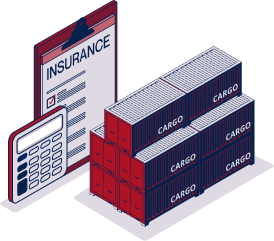
Supplier Management
To offer you a comprehensive service, we can proactively engage with your supplier. This enables us to gather detailed information about your products, ensuring a smooth and efficient process. We will verify that the supplier possesses all the required documentation, including a certificate of compliance, and thoroughly assess various aspects such as the product's condition, packaging, measurements, and the applicable HS code.
We are committed to delivering exceptional service, and our team members are fluent in both English and French.

Packaging and Wrapping
The packaging of your products plays a vital role in maintaining their stability during transportation, providing excellent protection during storage, and facilitating ease of handling. Our network of industry specialists is capable of delivering top-notch packaging services worldwide. Whether you need cardboard, pallets, boxes, bubble wrap, adhesive tape, or other packaging materials, our team is ready to assist you.
For more details, please visit our dedicated website for packaging services.
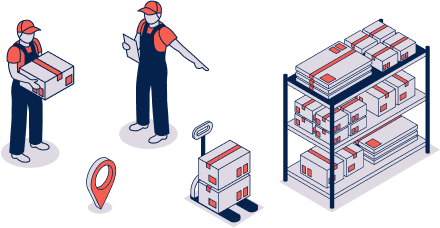
Ownership and Storage
Our storage facilities are conveniently located near the northern border of Italy. This allows us to securely store your items for any desired duration before shipping them to the United Kingdom or other destinations. Whether you wish to consolidate orders from multiple suppliers to fill a full container or need to divide a full container upon arrival at the port and distribute the contents to various locations, we are equipped to assist you with these requirements.
Please visit the following link to access our dedicated page for our Storage Service.
Personal Effects Shipping and Relocation
Whether you are planning to relocate to England or looking to send additional bags or sentimental items while on vacation, we provide reliable services for packaging, conditioning, and custom clearance to ensure the secure delivery of your personal effects. Regardless of your location, be it within Europe, the United Kingdom, or anywhere else worldwide, we guarantee a safe and efficient transportation process, right to your doorstep.
For more information about our moving services, please visit our dedicated page on relocation services at international.
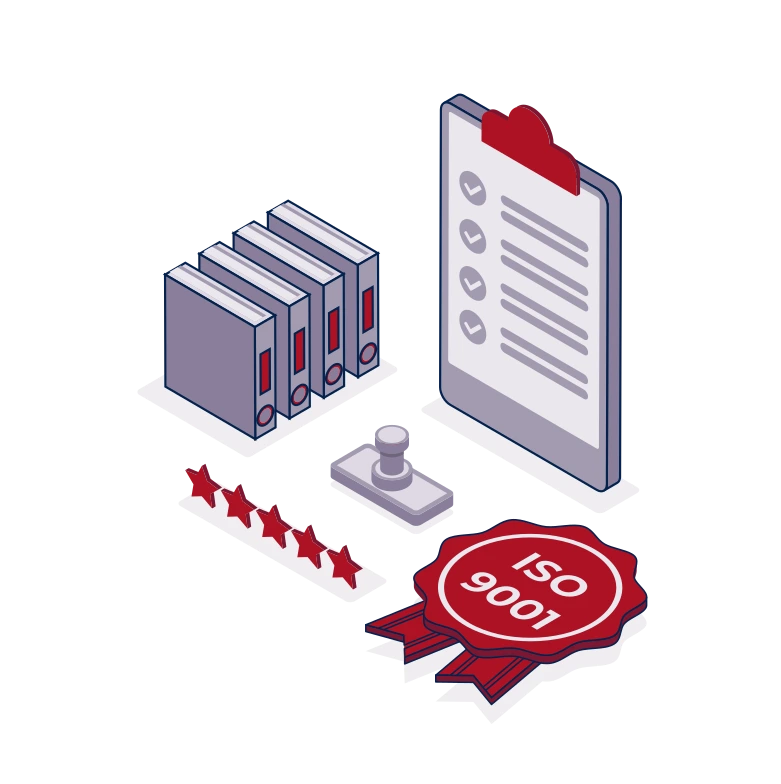
FAQ | Freight shipping between UK and Morocco | Rates -Transit time - Duties and taxes
There are several shipping routes available, including direct routes or those with transshipment options. It is advisable to check with shipping companies for specific routes and schedules.
Major shipping companies like Maersk, CMA CGM, Cosco Shipping, MSC, and Evergreen operate on this route. However, it is essential to verify their current services and availability for the desired timeframe.
Transit times can vary depending on factors such as the shipping route, weather conditions, and port congestion. It is recommended to consult with the shipping companies for estimated transit times.
Various types of cargo, including general goods, raw materials, manufactured products, and perishable items, can be transported between the UK and Morocco. However, certain restrictions and regulations may apply to specific goods.
Documentation requirements may include a commercial invoice, packing list, bill of lading, certificate of origin, and any specific customs documentation. It is important to ensure compliance with customs regulations of both countries.






